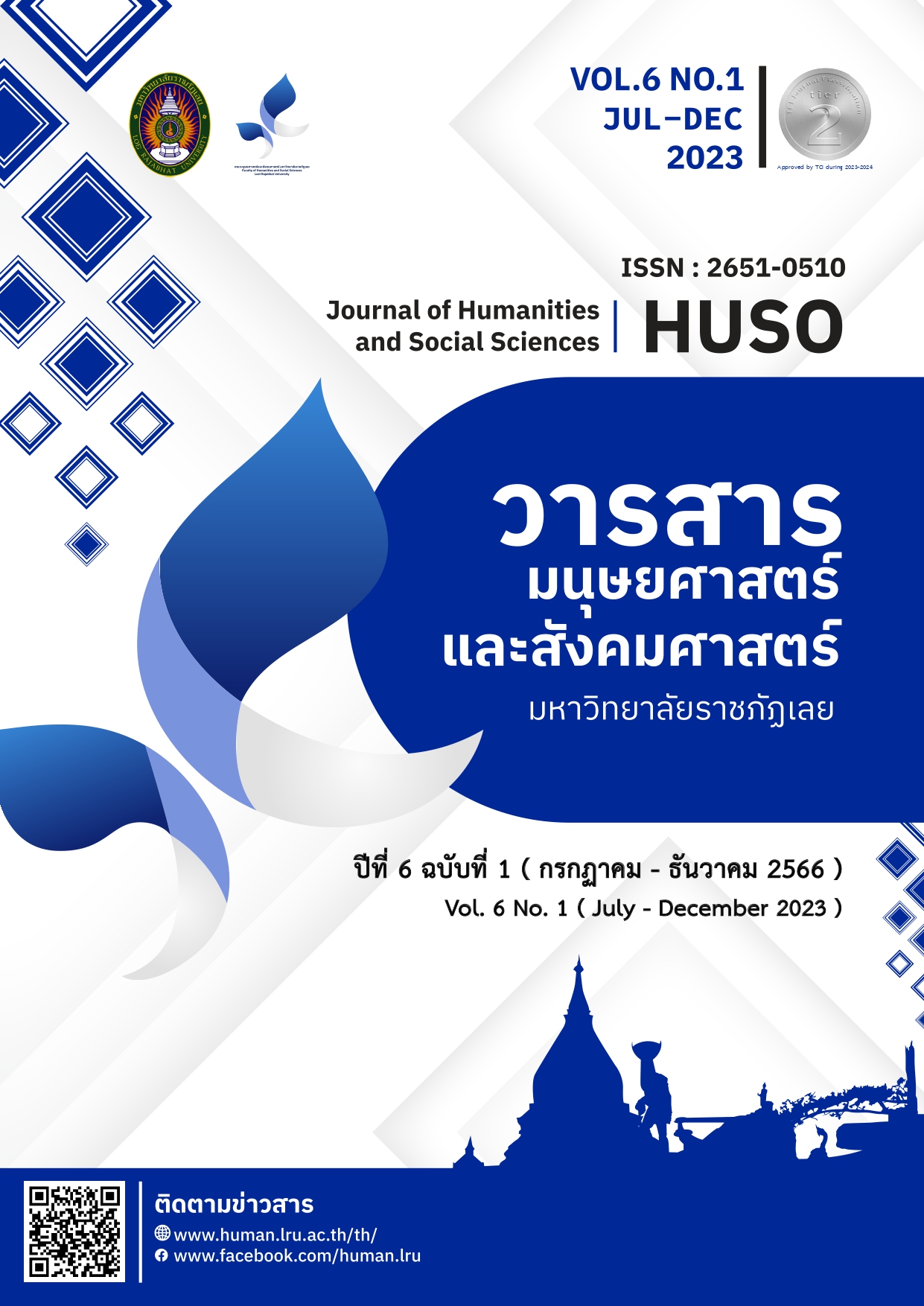Acquiring Ownership of Unowned Wild Animal: Concepts of Legal Principle and Buddhist Literature
Keywords:
Ownership, Unowned Wildlife, Civil and Commercial Code, Morality, Buddhist LiteratureAbstract
This academic article aims to study a case in which a person wounds and hunts after a wild animal and another person catches the injured animal or the animal dies on another person’s premises. It causes a controversy centered on the ownership of the wild animal. According to Section 12, the Civil and Commercial Code, the first person is the owner of the animal. From another point of view, the author considered the Buddhist literature on the Buddha and the Swan. Prince Devadatta shot a swan with arrow and hunted after the injured bird. However, Prince Siddhartha managed to heal and save swan’s life before Prince Devadatta caught up. An argument over the ownership of the swan arose. The Buddhist literature judged that the savior had a preferred right to the opposer. Hence, Prince Siddhartha owned the swan.
The study found that the concept of law principles was contrary to the concept of Buddhist literature. According to the law principles, those who come first gained the absolute right. In Buddhist literature, the savior’s right prevailed. It draws a comparison between law and morality. Lon Fuller and Somdet Phra Buddhaghosacariya (P. A. Payutto) believed that the law should always be consistent with morality. John Austin argued that there is no necessary connection between law and morality. Although these two concepts are different but has been adapted into the law. The author thought that Thai legislation should take into account morality as a guideline to ensure a suitable relevance to the way of life of the Buddhists.
References
เกียรติก้อง กิจการเจริญดี. ใครก่อนย่อมมีอำนาจดีกว่า. สืบค้น 24 มกราคม 2565, จาก http://web. krisdika.go.th/data/serve/tha/acknowledge/ acknowledge_2/proverb-7.htm.
จรัญ โฆษณานันท์. (2554). นิติปรัชญา. (พิมพ์ครั้งที่ 17). กรุงเทพฯ: สำนักพิมพ์มหาวิทยาลัยรามคำแหง.
ณัฐพล ยิ่งกล้า. กฎหมายสงวนและคุ้มครองสัตว์ป่าของไทย. สืบค้น 15 มกราคม 2565, จาก https:// www.parliament.go.th/ewtadmin/ewt /parliament_ parcy/ewt_dl_link.php?nid=48373
นฤมล ติบวงษา และสิทธิกร ศักดิ์แสง. (2562). ความหมายของกฎหมายและลักษณะของกฎหมาย : ความสมบูรณ์ของกฎหมายที่ส่งผลกระทบต่อการเมืองการปกครองของประเทศไทย. วารสารนิติศาสตร์และสังคมท้องถิ่น, 3(2), 108-109.
นิรตา ป้อมนาวิน. (2555). เจ้าชายสิทธัตถะ – เจ้าชายเทวทัตและพญาหงส์. สืบค้น 9 มกราคม 2565, จาก http: //www.madchima.org/forum/index.php?topic=6733.0
บัญญัติ สุชีวะ. (2552). คำอธิบายกฎหมายลักษณะทรัพย์ พิมพ์ครั้งที่ 12. กรุงเทพฯ : พลสยาม พริ้นติ้ง ประเทศไทย.
ประมวลกฎหมายแพ่งและพาณิชย์.
ประชุม โฉมฉาย. (2558). กฎหมายเอกชนเปรียบเทียบเบื้องต้น : จารีตโรมันและแองโกลแซกซอน (พิมพ์ครั้งที่ 6). กรุงเทพฯ : โรงพิมพ์เดือนตุลา.
พระไตรปิฎก เล่มที่ 9 พระสุตตันตปิฎก เล่มที่ 1 ทีฆนิกาย สีลขันธวรรค.
พระปลัดกำพล ปญฺญาวุฒฺโฒ. (2556). ศึกษาวิเคราะห์กรรมของพระเทวทัตที่ปรากฏในพระพุทธศาสนาเถรวาท. (วิทยานิพนธ์หลักสูตรปริญญาพุทธศาสนมหาบัณฑิต). สาขาวิชาพระพุทธศาสนา มหาวิทยาลัยมหาจุฬาลงกรณราชวิทยาลัย. อยุธยา.
พระพรหมคุณาภรณ์ (ป.อ. ปยุตโต). (2555). นิติศาสตร์แนวพุทธ. กรุงเทพฯ : วิญญูชน.
พระราชบัญญัติป้องกันการทารุณกรรมและการจัดสวัสดิภาพสัตว์ พ.ศ. 2557.
พระราชบัญญัติสงวนและคุ้มครองสัตว์ป่า พ.ศ. 2503.
พระราชบัญญัติสงวนและคุ้มครองสัตว์ป่า พ.ศ. 2535.
พระราชบัญญัติสงวนและคุ้มครองสัตว์ป่า (ฉบับที่2) พ.ศ. 2546.
พระราชบัญญัติสงวนและคุ้มครองสัตว์ป่า (ฉบับที่3) พ.ศ. 2557.
พระราชบัญญัติสงวนและคุ้มครองสัตว์ป่า พ.ศ. 2562.
พุทธทาสภิกขุ. (2533). พุทธประวัติฉบับสำหรับหน้ายุวชน. กรุงเทพฯ : ธรรมสภา.
มานิตย์ จุมปา. (2554). คำอธิบายประมวลกฎหมายแพ่งและพาณิชย์ว่าด้วยทรัพย์สิน พิมพ์ครั้งที่7. กรุงเทพฯ : สำนักพิมพ์แห่งจุฬาลงกรณ์มหาวิทยาลัย.
มูลนิธิสืบ นาคะเสถียร. (2560). สัตว์ป่า สูญพันธุ์ เพราะใคร. สืบค้น 14 สิงหาคม 2566 จากhttps://www.seub.or.th/seub/บทความ/สัตว์ป่า-สูญพันธุ์/
ราชกิจจานุเบกษา เล่ม 47/หน้า 442/18 มีนาคม 2473.
ศรีราชา เจริญพานิช. (2555). คำอธิบายกฎหมายว่าด้วยทรัพย์สิน พิมพ์ครั้งที่ 4. กรุงเทพฯ : สำนักพิมพ์วิญญูชน.
สมยศ เชื้อไทย. (2555). นิติปรัชญาเบื้องต้น (พิมพ์ครั้งที่ 15). กรุงเทพฯ : สำนักพิมพ์วิญญูชน.
สราวุธ ปิติยาศักดิ์. (2555). คำอธิบายกฎหมายลักษณะทรัพย์ พิมพ์ครั้งที่ 2. กรุงเทพฯ : สำนักพิมพ์นิติธรรม.
เสนีย์ ปราโมช. (2479). ประมวลกฎหมายแพ่งและพาณิชย์ว่าด้วยทรัพย์สิน. พระนคร : โรงพิมพ์อักษรนิติ.
Downloads
Published
Versions
- 2024-05-29 (2)
- 2023-12-25 (1)









